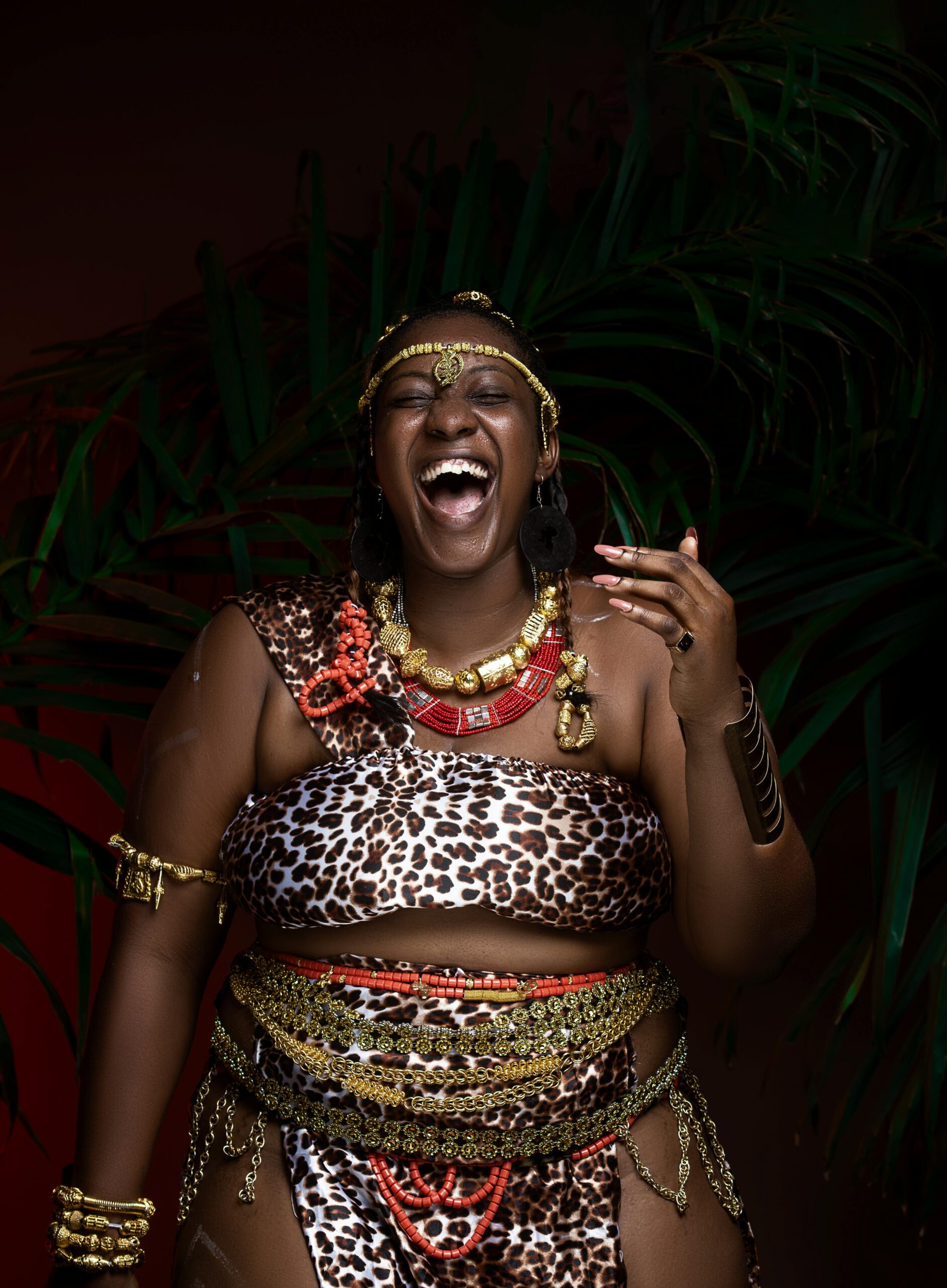African women have long been pillars of strength, wisdom, and cultural richness across the continent and throughout history. From ancient queens and matriarchs to modern-day trailblazers in politics, arts, and entrepreneurship, African women have played pivotal roles in shaping societies, preserving traditions, and driving progress. This blog post explores the profound impact of African women throughout history, highlighting their resilience, leadership, and unique contributions to the world.
Ancient African Queens and Matriarchs
In ancient Africa, women held positions of power and influence as queens, leaders, and custodians of culture and heritage.
1. Queen Nefertiti (Egypt):
- Legacy: Queen Nefertiti of Egypt, renowned for her beauty and intellect, wielded significant influence alongside her husband, Pharaoh Akhenaten, during the 14th century BCE.
- Cultural Contributions: Nefertiti promoted religious reforms and artistic achievements, contributing to Egypt’s cultural golden age.
2. Queen Amina of Zazzau (Nigeria):
- Military Strategist: Queen Amina of Zazzau, a 16th-century warrior queen, expanded the Hausa city-state of Zazzau through military prowess and strategic alliances.
- Legacy: Known for her courage and leadership, Queen Amina is celebrated for defending her kingdom and promoting economic growth through trade.
3. Makeda, Queen of Sheba (Ethiopia):
- Historical Figure: According to Ethiopian tradition, Queen Makeda (or Queen of Sheba) journeyed to visit King Solomon in ancient Israel, fostering diplomatic relations and cultural exchange.
- Symbol of Wisdom: Makeda’s legendary wisdom and prosperity symbolize Ethiopia’s rich history and cultural heritage.
Resilience and Contribution During Colonialism and Independence Movements
During the colonial era, African women played pivotal roles in resistance movements, education, and community development.
1. Yaa Asantewaa (Ghana):
- Anti-Colonial Leader: Yaa Asantewaa, Queen Mother of the Ashanti Empire in present-day Ghana, led the Ashanti-British “War of the Golden Stool” in 1900, resisting British colonial rule.
- Symbol of Resistance: Asantewaa’s bravery and leadership continue to inspire movements for independence and social justice across Africa.
2. Funmilayo Ransome-Kuti (Nigeria):
- Activist and Feminist: Funmilayo Ransome-Kuti, a Nigerian educator and women’s rights advocate, campaigned against colonialism and fought for women’s suffrage and social equality.
- Legacy: Mother of Nigerian musician Fela Kuti, Funmilayo’s activism laid the foundation for gender equality and social justice in post-colonial Nigeria.
3. Albertina Sisulu (South Africa):
- Anti-Apartheid Activist: Albertina Sisulu, a South African nurse and political leader, played a pivotal role in the anti-apartheid struggle alongside her husband, Walter Sisulu.
- Legacy: Known as the “Mother of the Nation,” Sisulu’s commitment to human rights and social justice earned her global recognition and respect.
Cultural Contributions and Artistic Excellence
African women have enriched global culture through literature, music, art, and storytelling, showcasing diverse perspectives and creative expressions.
1. Chimamanda Ngozi Adichie (Nigeria):
- Acclaimed Author: Chimamanda Ngozi Adichie is a Nigerian novelist and feminist icon, known for works like “Half of a Yellow Sun” and “Americanah,” which explore themes of identity, race, and gender.
- Literary Impact: Adichie’s literary achievements have garnered international acclaim, inspiring readers and amplifying African voices on the global stage.
2. Miriam Makeba (South Africa):
- Musical Icon: Miriam Makeba, known as “Mama Africa,” was a South African singer and civil rights activist who used her music to promote justice and liberation.
- Global Influence: Makeba’s music transcended borders, advocating for African unity and raising awareness of apartheid’s injustices through her powerful voice and activism.
3. Fatoumata Diawara (Mali):
- Singer-Songwriter: Fatoumata Diawara is a Malian musician and actress celebrated for her soulful vocals and fusion of traditional Malian music with contemporary sounds.
- Cultural Ambassador: Diawara’s artistry promotes cultural heritage and social consciousness, highlighting Mali’s rich musical traditions and global influence.
Leadership in Contemporary Africa
Today, African women continue to lead in politics, business, academia, and community development, driving social change and economic progress.
1. Ellen Johnson Sirleaf (Liberia):
- First Female President: Ellen Johnson Sirleaf made history as Africa’s first elected female head of state, serving as President of Liberia from 2006 to 2018.
- Leadership and Legacy: Sirleaf’s tenure focused on reconciliation, economic recovery, and gender equality, paving the way for future women leaders in Africa and beyond.
2. Ngozi Okonjo-Iweala (Nigeria):
- Global Economist: Dr. Ngozi Okonjo-Iweala, a Nigerian economist and former finance minister, became the first woman and first African Director-General of the World Trade Organization (WTO) in 2021.
- Advocate for Global Trade: Okonjo-Iweala’s leadership promotes inclusive trade policies and economic development, advocating for African representation and empowerment on the global stage.
3. Wangari Maathai (Kenya):
- Environmental Activist: Wangari Maathai, a Kenyan environmentalist and Nobel Peace Prize laureate, founded the Green Belt Movement to empower women through tree planting and environmental conservation.
- Legacy: Maathai’s advocacy for sustainable development and grassroots activism inspires environmental stewardship and social justice movements worldwide.
Challenges and Progress Towards Gender Equality
Despite their achievements, African women face challenges such as gender-based violence, limited access to education, healthcare, and economic opportunities.
1. Gender-Based Violence: High rates of gender-based violence in many African countries threaten women’s safety and undermine their socio-economic progress.
- Activism and Advocacy: Grassroots movements and international campaigns raise awareness and advocate for legal reforms and support services for survivors.
2. Education and Empowerment: Improving access to education and vocational training empowers women and girls to achieve their full potential and contribute to their communities’ development.
- STEM Education: Promoting STEM education for girls and young women fosters innovation and entrepreneurship in science, technology, engineering, and mathematics.
3. Economic Empowerment: Supporting women’s entrepreneurship, access to finance, and leadership opportunities strengthens economic resilience and promotes sustainable development.
- Policy Reforms: Governments and civil society organizations implement policies and programs that promote gender equality, including affirmative action measures and gender-responsive budgeting.
Conclusion
African women embody resilience, leadership, and cultural richness, contributing profoundly to their communities, nations, and the global stage. From ancient queens and matriarchs to modern-day pioneers in politics, arts, and entrepreneurship, African women have shattered barriers, defied expectations, and inspired future generations. As Africa navigates the complexities of modernity and globalization, the contributions of African women are indispensable to achieving inclusive growth, social justice, and sustainable development across the continent. Through continued empowerment, advocacy, and recognition of their diverse talents and achievements, African women will continue to shape a brighter and more equitable future for all.



